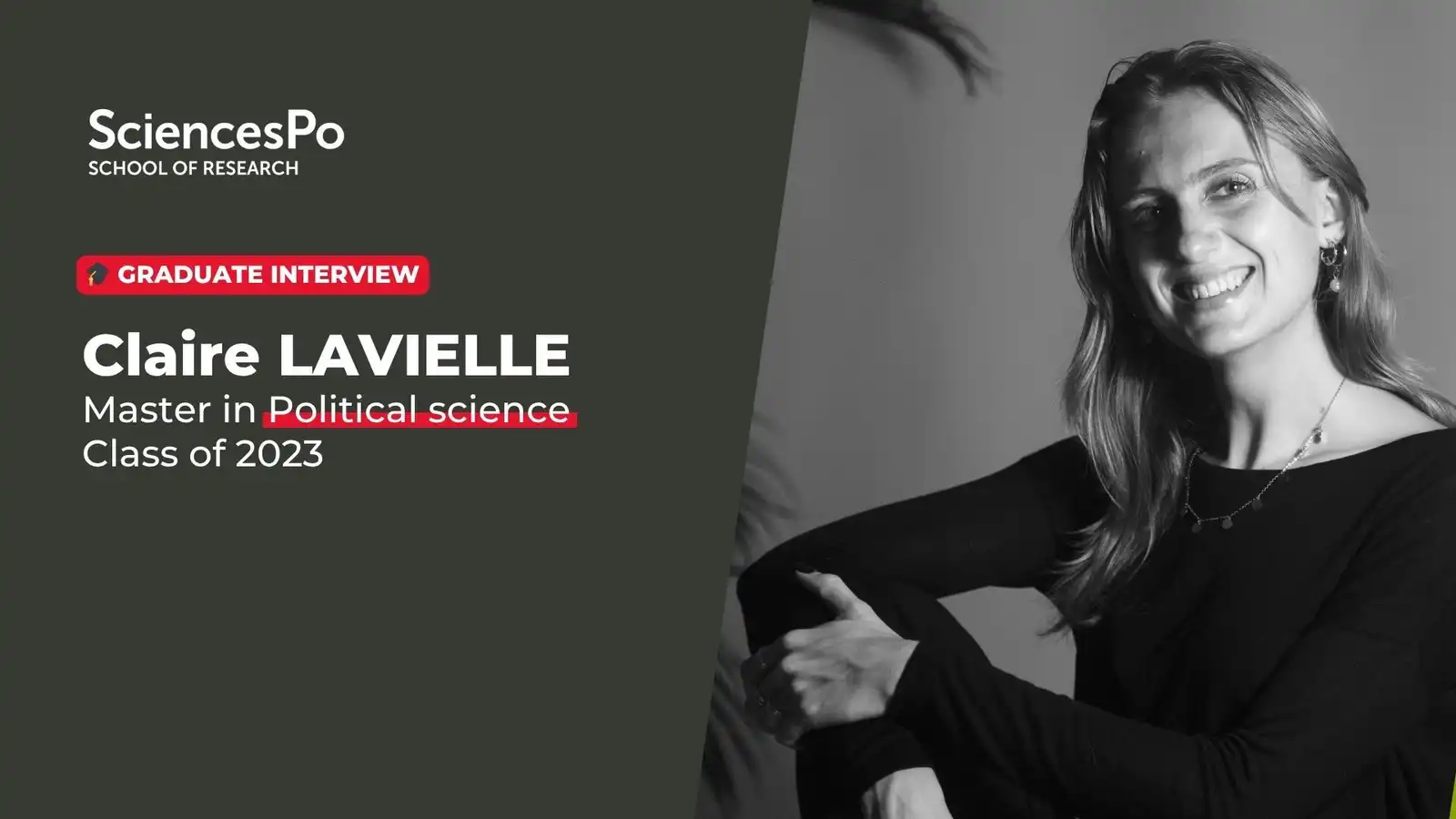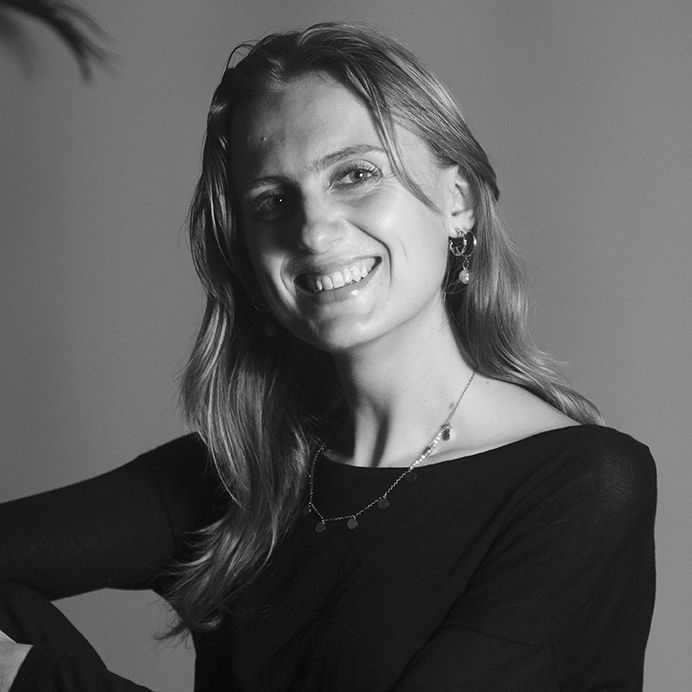Home>Claire LAVIELLE, Master in Political Science (class of 2023)
01.10.2025
Claire LAVIELLE, Master in Political Science (class of 2023)

CAN YOU TELL US ABOUT YOUR ACADEMIC BACKGROUND? HOW DID YOUR INTEREST IN POLITICAL SCIENCE BEGIN?
I started with a science baccalaureate, then went on to a post-baccalaureate business school. This path gave me an international outlook with a year abroad in China, as well as a gap year during which I did two internships, one at the Chamber of Commerce and the other in a company. I then went on to do a work-study master's degree.
My interest in political science developed later, through my experiences in the field, particularly during my civic service in Niger. I felt the need to better understand the political and international dynamics that shape our societies and directly influence individual and collective trajectories.
WHAT DID YOU LEARN FROM YOUR YEARS OF STUDY AT THE SCHOOL OF RESEARCH? WHAT MEMORIES DO YOU HAVE OF YOUR SCHOOL, YOUR CLASS, AND YOUR TEACHERS?
My studies gave me solid knowledge, but above all, they taught me research methodology and critical analysis skills. I no longer feel ‘empty’: I now have the tools to analyse political, economic and social dynamics. This has allowed me to feel more confident and consistent in my thinking.
I remember the school as being much more diverse than I had imagined, with constant intellectual stimulation. The teachers were passionate and demanding, each with their own personality and approach, which made the classes particularly lively. My class was made up of students with a variety of interests, which enriched our discussions and broadened our perspectives.
WHICH TEACHER OR SUBJECT MADE THE BIGGEST IMPACT ON YOU?
Guillaume Devin's course, Political Science of International Relations – Socio-Historical Approaches to International Cooperation, had a profound impact on me. I loved his teaching on international organisations. It fuelled a real passion, giving me solid references and a nuanced understanding of their role in international relations.
WHAT IS YOUR CURRENT POSITION?
I am currently working as an international volunteer in administration, as an Economic Officer at the French Embassy in Nigeria, with a portfolio focused mainly on technological issues.
WHAT WERE THE MAIN STAGES IN THE DEVELOPMENT OF YOUR CAREER PLAN?
Ten years after graduating from secondary school, I consider my career path to be a work in progress. In an uncertain environment, it is difficult to make long-term plans: you have to constantly adapt. I have explored many avenues – two master's degrees, a work-study programme, a gap year, internships in the public and private sectors – to test my abilities and interests and identify what suits me best.
I see my career path less as a straight line and more as a series of experiments and adjustments. It's a balance between three elements: what society needs today, what I enjoy doing, and the opportunities available to me. It's a process of constant trial and error.

« My training has given me credibility and professionalism in the eyes of my colleagues, but above all, it has given me concrete tools. I have learned to cultivate my curiosity, maintain a critical mind, distinguish reliable sources from biased ones, and develop structured thinking. »
Claire LAVIELLE
Economic Officer at the French Embassy in Nigeria
HOW HAS YOUR EDUCATION CONTRIBUTED TO THE POSITION YOU HOLD TODAY?
My training has given me credibility and professionalism in the eyes of my colleagues, but above all, it has given me concrete tools. I have learned to cultivate my curiosity, maintain a critical mind, distinguish reliable sources from biased ones, and develop structured thinking. I have also acquired the ability to ask the right questions, put economic and political issues into perspective, and get to the heart of matters rather than remaining on the surface.
DO YOU HAVE ANY ADVICE FOR A STUDENT WHO WANTS TO ENTER THE SECTOR IN WHICH YOU CURRENTLY WORK?
I would say that there is no single typical profile or mandatory linear career path. My own path has been atypical and sometimes chaotic, but that has never prevented me from rising to the challenge. On the contrary, I believe that our institutions and organisations need more diversity in terms of profiles. Even if you are ‘different’, you have something unique to contribute.
It's also important to keep in mind that there's no single way to contribute to this sector. We can do so on several levels: politically, by participating in the development of frameworks and public policies; economically, by supporting businesses and investors; or operationally, by implementing very concrete projects in the field. Each approach has its value, and what matters is finding the way in which you want to contribute, remaining curious and adaptable, and not limiting yourself to a single model of success.
Useful links
